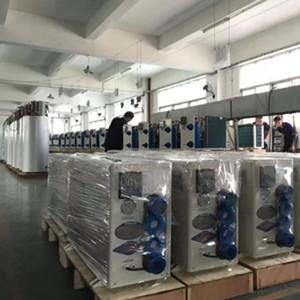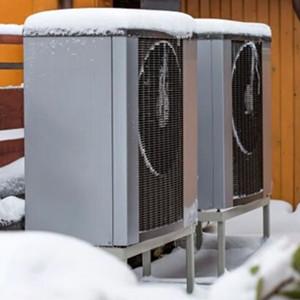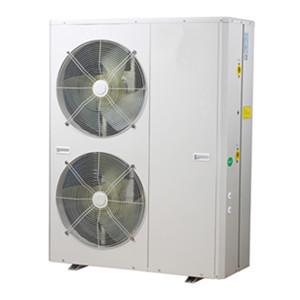Heat Pumps in Cold Climates
Heat pumps are a great resource for heating and cooling your home while also reducing energy costs. If you've never had this system before, you may be wondering, will a heat pump work in cold weather? The answer is yes, as long as it is installed correctly. In some cases, you may need to pair it with a backup heat source.
How heat pumps work
A heat pump is a heating and cooling device installed outdoors. Because of the name, many people mistakenly believe that heat pumps produce heat. In fact, they transfer heat between the outdoors and your home. They can be divided into two types:
1. Air source heat pump
2. Ground source heat pump
The most common type is an air source heat pump, which relies on the transfer of air. During the colder months, they move hot air from outside to inside, warming the home. Then, during the warmer months, they heat the home by moving hot air from the inside to the outside.
Geothermal heat pumps, on the other hand, transfer heat between your home and the ground outside. Ground source heat pumps tend to be more energy efficient than air source heat pumps. Unlike the air, ground temperatures remain consistent year-round. However, they are also more expensive to install.
Whether you use an air source heat pump or a geothermal heat pump, you can achieve high energy efficiency, thus reducing long-term costs. Standard heat pumps offer 300% energy efficiency, while extremely high-quality models can reach 600%.

How heat pumps work in cold weather
Now that you know what a heat pump is, you may be wondering: How exactly do they work in cold weather? To understand this better, let us divide the heat pump into the following parts:
1. Outdoor unit and indoor unit
2. Refrigerant coolant
3. Compressor
4. Expansion valve and reversing valve
Standard heat pumps have outdoor and indoor units connected by an expansion valve. When in heating mode, the pump absorbs heat from the outdoor air and transfers it to the refrigerant coolant. Next, the compressor pressurizes the refrigerant, raising the temperature of the air and spreading it throughout your home. When a heat pump is in cooling mode, the opposite happens - the pump absorbs heat from the inside, and the reversing valve moves this hot air out of the home.
Why you may need a backup heat source
Heat pumps can work in all types of weather, including cold weather. However, when it's extremely cold outside, the pump may have difficulty extracting heat from the outside air. If you live in an area with temperatures below 32°F, a backup heat source is recommended to ensure you stay warm during the winter months. There are two main sources you can use:
1. Resistive coil heater
2. Gas stove (dual fuel system)
Resistive coil heaters are a cheaper and more commonly used alternative source. Coils installed directly in the ductwork convert electrical energy into heat and spread it throughout the house. Although they are relatively cheap, they are quite energy inefficient compared to heat pumps. In other words, the more you rely on your coils, the higher your energy bills will be.
Another option is to use a dual-fuel system consisting of a heat pump and a gas furnace. This comes with higher installation costs; however, you can expect greater energy efficiency. Electric coils require about three times the energy to generate heat than a gas furnace. Ultimately, a gas furnace is the better long-term option, and you can expect the energy savings to cover the additional installation costs after a few years.
Are heat pumps a good idea in cold areas?
If you're looking for a reliable and cost-effective way to stay warm during the winter in colder areas, a heat pump is a great resource. Not only do they provide a steady flow of hot air during the colder months, but they also keep you cool when summer arrives. However, since temperatures can drop as low as 12°F, it is recommended to pair the heat pump with a backup source.
Get more help
Leomon is a professional heat pump manufacturer. If you are considering purchasing a heat pump, please contact us. Our heat pump experts will give you the best advice.





